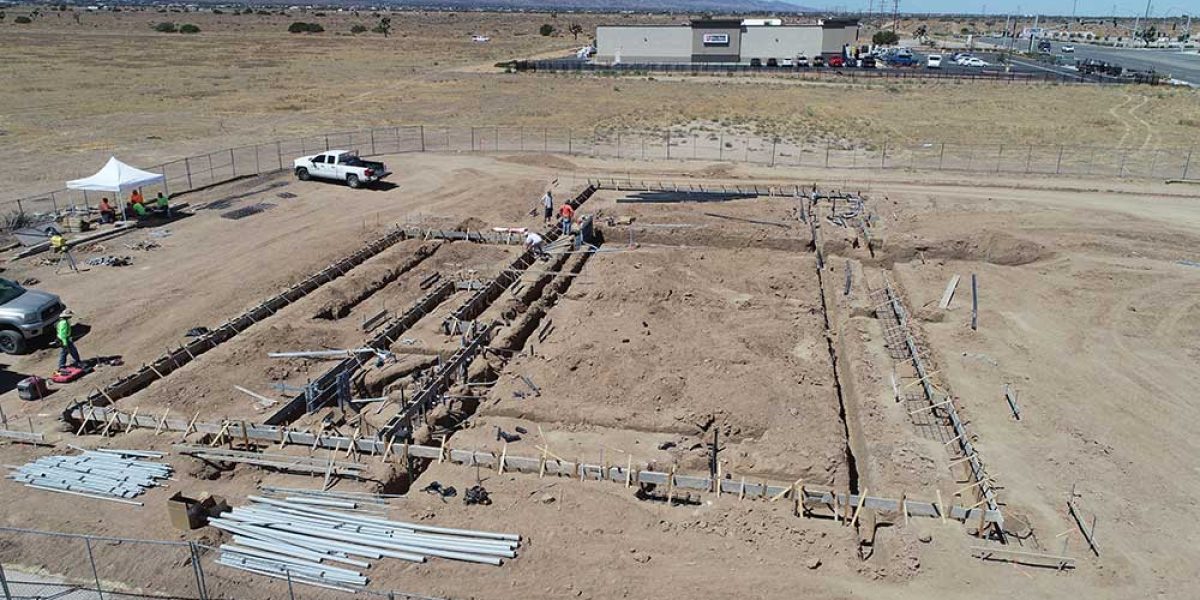Success in building construction depends not only on the execution but also on the planning. Before any hammer blows or concrete pours, it is essential to set the stage for a construction endeavor. This initial phase, which involves meticulous site preparation, provides the groundwork for a successful and efficient construction process. In this article, we will discuss the significance of preparing the construction site and the actions necessary to ensure a solid start to your construction project.
Clearing and Grading
The initial stage in preparing a construction site is to remove any obstacles from the land. This includes the removal of trees, shrubs, rocks, and detritus that could impede construction. After the site is removed, grading is performed to ensure proper drainage and a stable foundation by leveling the ground.
Surveying and Marking
Precise surveying is required to align the construction project with the intended design and layout. Surveyors use sophisticated equipment to ascertain the site’s boundaries, elevations, and contours. By accurately designating the site, construction crews can refer to these measurements throughout the duration of the project to ensure accuracy and adherence to the blueprints.
Identification and Disconnection of Existing Utility Lines
Prior to beginning any construction work, it is essential to identify and designate the locations of existing utility lines, including those for water, gas, electricity, and telecommunications. This measure prevents accidental damage and ensures the construction crew’s safety. Disconnection of utilities may be required for certain phases of construction, and coordination with utility providers is required.
Soil Testing and Analysis
Understanding the soil’s composition is crucial for constructing a stable foundation, so soil testing and analysis are essential. Testing and analysis of the soil are performed to ascertain its load-bearing capacity and characteristics. This information assists engineers in designing appropriate foundation systems and selecting appropriate construction techniques to ensure the structural integrity of the building.
Environmental Aspects
Construction initiatives must adhere to environmental regulations and factors. This includes the consideration of potential impacts on ecosystems, water bodies, and air quality. Preparing a construction site responsibly requires implementing measures to prevent soil erosion, implementing appropriate waste management practices, and ensuring compliance with environmental guidelines.
Access and Transportation
Access and transportation to the construction site are essential for the on-time delivery of materials and equipment. Planned access routes, adequate space for construction vehicles, and coordination with transportation providers all contribute to the efficient flow of construction activities. Additionally, adequate parking and stowage spaces should be designated to reduce disruptions.
Securing Permits and Approvals
Before beginning construction, it is necessary to obtain the required permits and approvals from local authorities. This includes construction permits, environmental conformance, zoning regulations, and any other project-specific requirements. Obtaining these permits in advance prevents costly delays and ensures legal compliance.
Safety and Security Measures
Creating a secure working environment is of paramount importance in the construction industry. Implementing safety measures, such as erecting safety barricades, providing appropriate personal protective equipment (PPE), and conducting comprehensive safety briefings, is essential. In addition, securing the construction site with fencing and surveillance systems prevents unauthorized access and safeguards expensive equipment and materials.
Conclusion
The preparation of a construction site paves the way for a prosperous building project. A solid foundation is ensured by thoroughly clearing, grading, surveying, and analyzing the site. Consideration of environmental factors, acquisition of permits, and implementation of safety precautions contribute to responsible and productive construction practices. By paying close attention to these initial steps, you can ensure a smooth construction process and send the project on the road to success.








